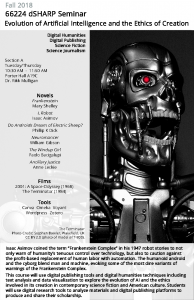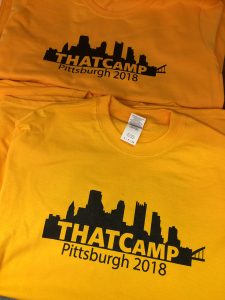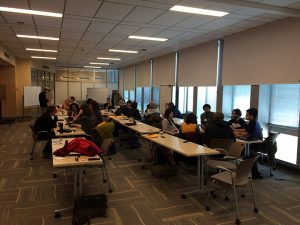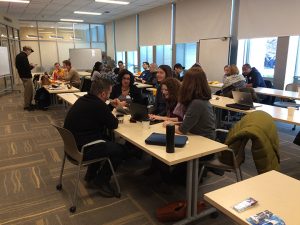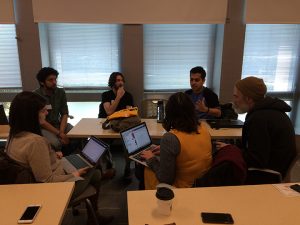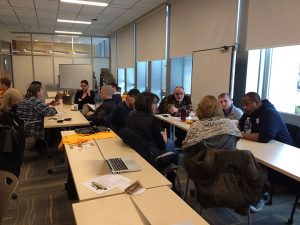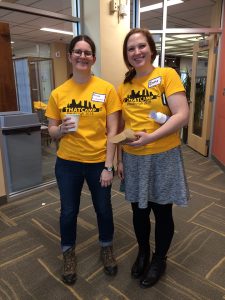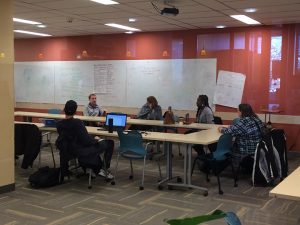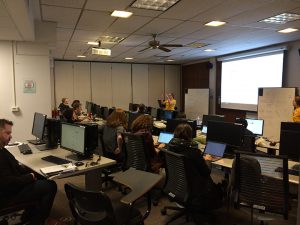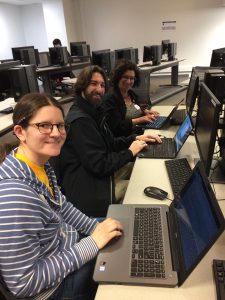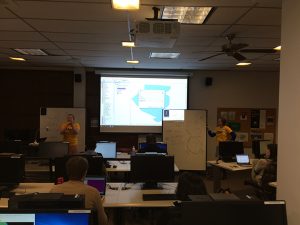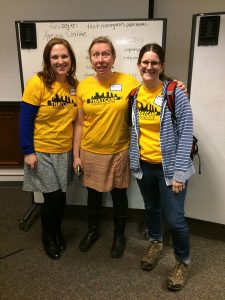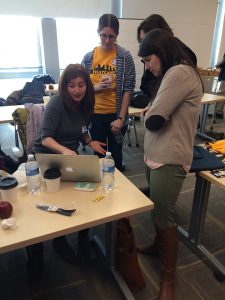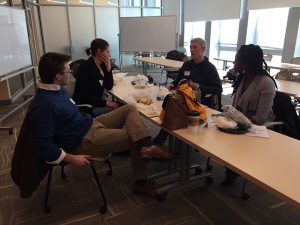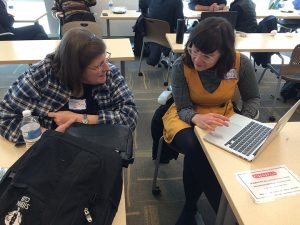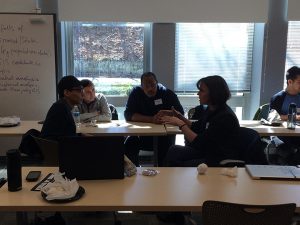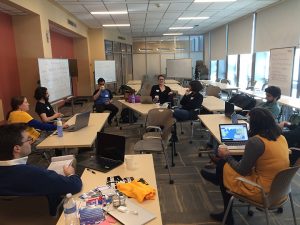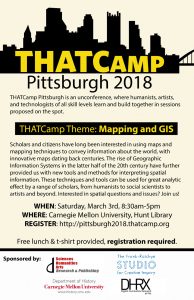Digital Scholarship at Columbia University Libraries:
Past, Present, and Future
Thursday, February 15
4:30 – 6:00 pm
The Den in the Sorrells Library
4400 Wean Hall
Carnegie Mellon University
Description:
Over the course of several years, the Columbia University Libraries have built a comprehensive program of digital scholarship across its campuses—connecting with faculty and student scholars to support learning needs and research agenda with access to technologies, systems, and expertise in digital workflows. From scholarly communication to computational support to the emergent methods and tools of the digital humanities, the libraries have moved from innovation and experimentation to maturing models for doing this work. Mark Newton will explore select scholarly projects and technical development around digital publishing and archiving workflows, highlighting the outcomes for library and scholars in partnership to advance knowledge from both within the institution and communicated to broad audiences beyond.
Dr. Alex Gil will follow Mark Newton’s presentation with an introduction to the life and mission of the Butler Studio. The Studio was founded five years ago as a tech-lite, co-working library space in order to foster digital scholarship in the humanities and humanistic social sciences. Though the United States boasts many digital humanities and digital scholarship labs, centers and now library divisions, the Studio is one of the few to have achieved the much desired active intersection between faculty, students and librarians—a true hybrid space of intellectual production within a large research library. In this presentation, Gil will offer perspectives on what makes that achievement at Columbia particularly unique, how it was accomplished and what other collectives may learn or avoid from it.
Bios:
Mark Newton is the Director of Digital Scholarship at Columbia University Libraries. His work focuses on the development of the library’s scholarly publications partnership program, the Academic Commons institutional repository, and a variety of faculty- and student-led digital scholarship projects. He currently serves on the project staff for Humanities CORE, an NEH-funded digital humanities project with the Modern Language Association, pairing repository infrastructure with the MLA Commons community hub.
Alex Gil is Digital Scholarship Coordinator at Columbia University Libraries and Affiliate Faculty of the Department of English and Comparative Literature at Columbia University. He collaborates with faculty, students and library professionals leveraging computational and network technologies in humanities research, pedagogy and knowledge production. He is among the founders of several ongoing, warmly received initiatives where he currently plays leadership roles: Co-director of the Studio@Butler at Columbia University, a tech-light library innovation space focused on digital scholarship and pedagogy; faculty moderator of Columbia’s Group for Experimental Methods in the Humanities, a vibrant trans-disciplinary research cluster focused on experimental humanities; current chair of Global Outlook::Digital Humanities, an interest group connecting scholars around the world; senior editor of sx archipelagos, a journal of Caribbean Digital Studies, and co-wrangler of The Caribbean Digital conference series. Current projects include Ed, a digital platform for minimal editions of literary texts; Aimé Césaire and The Broken Record, a minimal computing experiment in long-form digital scholarship; and, In The Same Boats, a visualization of trans-Atlantic intersections of black intellectuals in the 20th century.
